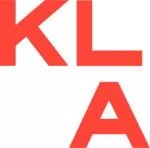On July 24, 2023, the President enacted Provisional Measure ("PM") No. 1,182/23, amending Federal Law No. 13,756/2018 to regulate the sports betting by means of so-called fixed-quota bets. The PM authorize operating agents' advertisement in various channels, physical or virtual, pursuant to the rules set out by the Ministry of Finance.
As provided for in article 29 of the PM, a federal license will be granted to national or foreign private entities legally with operations in Brazil, subject to payment of fixed license fee (whose amount is yet to be determined) and to license requirements provided for in the regulations of the Ministry of Finance. In addition, sports betting companies will operate in a competitive environment, without restriction on the number of licenses granted by the Ministry of Finance.
According to the PM, operating agents will be taxed at 18% (eighteen percent) on the Gross Gaming Revenue ("GGR"), i.e., the revenue obtained by the games less the prize paid to players. The eighteen percent (18%) tax will be divided as follows: ten percent (10%) for social security, three percent (3%) for the Ministry of Sports, two and a half percent (2.55%) for the National Public Security Fund, one and sixty-three tenths' percent (1.63%) for clubs and athletes associated with gambling and eighty-two tenths' percent (0.82%) for basic education. Initially, the Ministry of Finance estimated a tax rate of 16% (sixteen percent), however, the government opted to increase such percentage to foster activities conducted by the Ministry of Sport.
The Federal Government expects to collect up to BRL 2two billion in 2024 from the taxation of bets, and in the following years the collection may reach BRL 12twelve billion. The PM provides that prizes that are not redeemed within 90 (ninety) days will be reverted to student financing (FIES program) by July 2028. After that date, the funds will be allocated to the National Treasury.
For enforcement of betting transactions, the PM establishes that the Ministry of Finance may request technical, operational, economic-financial and accounting information from regulated betting operators and guarantees confidentiality of the information and personal data. In case of refusal, or unjustified delay in the provision of information or documents, a daily fine of R$ 10,000.00 (ten thousand reais) may be imposed, which may be increased up to 20 (twenty) times, if necessary, to ensure compliance with the rules by the operating agents.
Companies operating without a proper license from the Ministry of Finance or breaching sports betting framework may be subject to severe sanctions . Applicable fines may vary from 0.1% (one tenth percent) to 20% (twenty percent) of the company's revenue, with a maximum limit of BRL 2 billion per infraction. A company may have its license revoked should it fail to comply with applicable rules.
To prevent actions that may compromise the integrity and transparency of sports betting, the PM establishes that partners and shareholders of fixed-odds betting operators may not act as managers or have participation in sports organizations. In addition, operators will be required to report to the Ministry of Finance any event in which there is suspicion of manipulation of results and which will be subject to specific regulation. Operators are expected to adopt efficient mechanisms for monitoring financial transactions to mitigate money laundering risks and ensure KYC compliance..
The PM also prohibits participation in fixed-odds betting by public officials who work in oversight roles at the federal level, minors, individuals who have access to lottery systems, individuals who can influence the results of the games – for example, coaches, athletes, and referees – and registered in national credit protection registers. This prohibition extends to spouses, partners, and family members up to the second degree, persons with access to betting systems and those who can influence the results of games, as well as protecting persons considered vulnerable to pathological gambling.
The Provisional Measure also stipules regulatory burdens on operating agents, as follows:
- Third-party rights: One of the essential aspects of transaction of fixed odds sports betting involves trademark licensing regarding teams and athletes. The Ministry of Finance will authorize use of athletes' intellectual property (image, name, sports nickname, etc.), as well as the denominations, brands, emblems, anthems, and symbols of sports organizations.
- Awareness Actions: Operating agents will be responsible for promoting awareness actions on pathological gambling, including creation of codes of conduct and dissemination of good practices that foster a healthy environment. In addition, the National Advertising Self-Regulation Council (CONAR) may impose restrictions and additional guidelines to the Ministry of Finance's regulation, as well as issue specific recommendations for communication, advertising, and marketing actions of the fixed-odds lottery.
- Advertising: the PM outlaws commercial advertising of websites that offer or operate fixed-odds lottery without proper authorization from the Ministry of Finance. Sports organizations and athletes must refrain from using names and brands of illegal operators. This prohibition will not take effect yet, considering the absence of a regulation from the Ministry of Finance allowing the submission of an application for authorization to operate in Brazil.
- Sporting events streaming: Finally, fixed-odds betting operators are also prohibited from acquiring, licensing or financing the purchase of rights to sporting events held in Brazil for streaming, distribution or any other form of display of sounds and images, through any medium.
The PM will be subject to congressional approval within 120 (one hundred and twenty) days. If the PM is not passed into law within that period, it will become ineffective.
In parallel to Congress' approval of the PM, the sector awaits the issuance of regulations on the procedure for granting betting licenses (including a definition of the amount of the license fee and related procedural steps), KYC compliance rules, development of a monitoring system with capacity for real-time detection of suspicious bets (including but not limited to creation of a governmental agency with specific oversight powers), and rules on responsible gambling.
The content of this article is intended to provide a general guide to the subject matter. Specialist advice should be sought about your specific circumstances.



